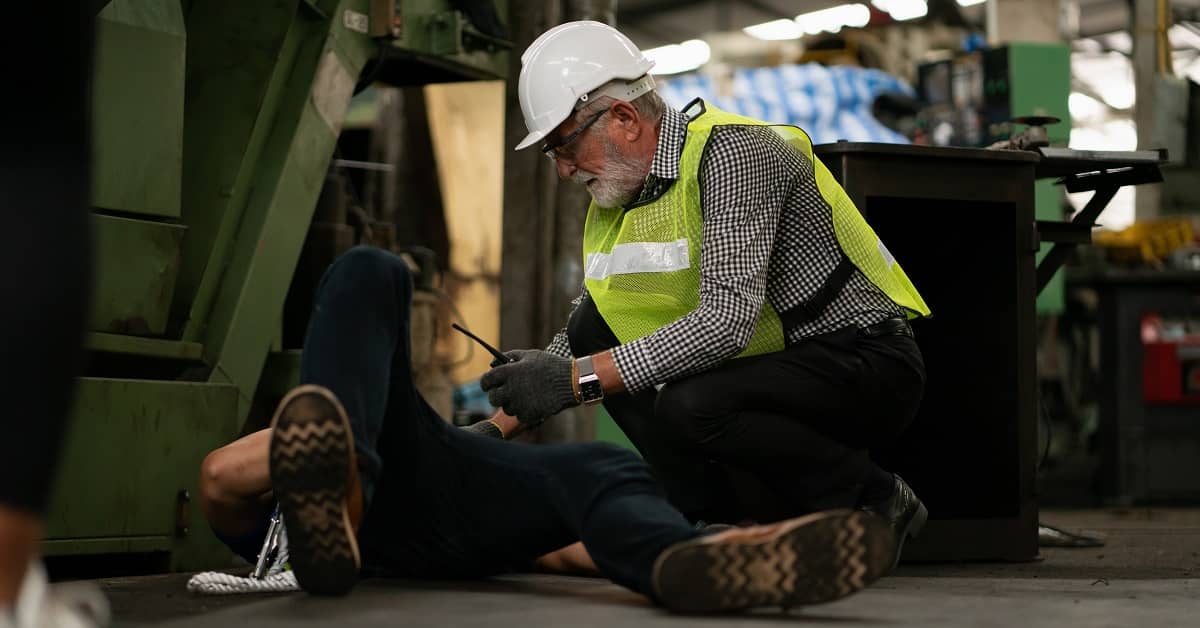Can I Sue My Employer for an Injury on the Job?
October 25, 2021 | By Colombo Law
Most workers in Ohio are entitled to workers’ compensation benefits if they get hurt on the job. However, workers’ comp may not be the only option you have for recovering compensation after a workplace injury.
There are limited circumstances in which employers may be liable for injuries suffered by workers. It is important to know all of your legal rights in the wake of an on-the-job accident to ensure you get the full compensation you deserve.
Contact a work injury attorney at Colombo Law today for a FREE review of your case. Our lawyers serve clients in Columbus, Cincinnati, and throughout Ohio.
Workers’ Compensation vs. Personal Injury Claims
There are several significant differences between workers’ compensation and personal injury claims. For example, personal injury claims are either settled out of court or through a trial verdict. Workers’ comp claims, meanwhile, are handled by the Ohio Bureau of Workers’ Compensation.
For injured workers, the most important difference between the two types of claims is what damages you are eligible to recover compensation for:
- Workers’ comp claims cover only economic damages, including medical expenses and a portion of lost wages. Unfortunately, the amount provided by workers’ compensation benefits is usually less than the full cost of an injury. With Temporary Total (TT) Compensation benefits, for example, you are only able to recover 72% of your average earnings for the first 12 weeks following an injury. After 12 weeks, you are only eligible for 66.6% of your average earnings over the past 52 weeks.
- In a personal injury claim, on the other hand, you can pursue compensation for all medical expenses, lost wages, and additional damages, including pain and suffering. In other words, if another party’s negligence caused your injury, you may be able to recover every expense or loss associated with it, including emotional and psychological damages.
Another major difference: While workers’ compensation is a no-fault system, successfully resolving a personal injury claim requires you to prove that someone else was at fault. This difference can have a major impact on your ability to sue your employer or another party for a workplace injury.
When Is an Employer Liable for a Work Injury?
Workers’ compensation is designed to limit litigation around workplace accidents. As such, employers are generally immune from personal injury lawsuits from their employees.
However, there are some situations where an employee may still be able to sue their employer.
For example, if an employer knowingly and intentionally put an employee in a dangerous situation that was likely to cause injury, the employer may be held liable for damages beyond what workers’ compensation covers. Employers may also be liable if they deny a workers’ compensation claim in bad faith (i.e., they willfully ignore or lie about circumstances related to the accident and/or your injuries).
It is also important to consider employment status when determining your rights after a work injury. If you are classified as an employee, workers’ compensation may be your only option. However, if you are classified as an independent contractor and you get hurt on the job, you may be able to file suit against the person or company that hired you.
Regardless of the circumstances, pursuing a work injury claim can be an uphill battle. It is in your best interest to discuss your case with a work injury attorney as soon as possible.
Filing a Claim Against an Employer
Many workers are unprepared to meet the burden of proof required to recover compensation in a personal injury claim. Unlike filing for workers’ comp benefits, you will need to prove that your employer was negligent.
Although some injured workers may be able to photograph their workplace, gather statements from colleagues, and take additional steps to start building their claim, those who have been seriously injured likely need to be taken to the emergency room immediately. This makes investigating the accident difficult.
Once you file a claim, your employer’s insurance company will likely fight it, arguing that the employer cannot be sued for the work-related injury. This can result in lengthy, complex negotiations, or it may mean that you have to sue to recover damages.
Contact a Work Injury Attorney Today
While workers’ compensation claims can be relatively straightforward, filing a lawsuit against your employer is not. It is crucial to explore all of your legal options after being hurt on the job.
For more than 20 years, Colombo Law has represented clients in a wide range of complex personal injury claims, including those related to workplace injuries. We understand the complexities of suing an employer, and we can help you pursue the full compensation you and your family deserve.
Please call (614) 362-7000 today for a FREE consultation with a work injury lawyer. Colombo Law serves clients in Columbus, Cincinnati, and throughout Ohio.


